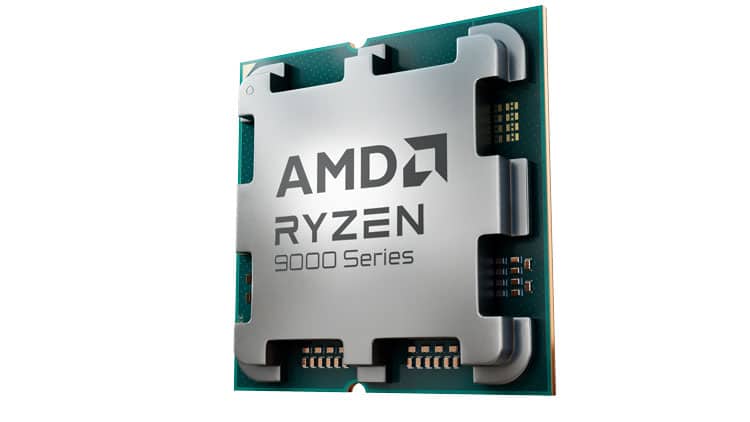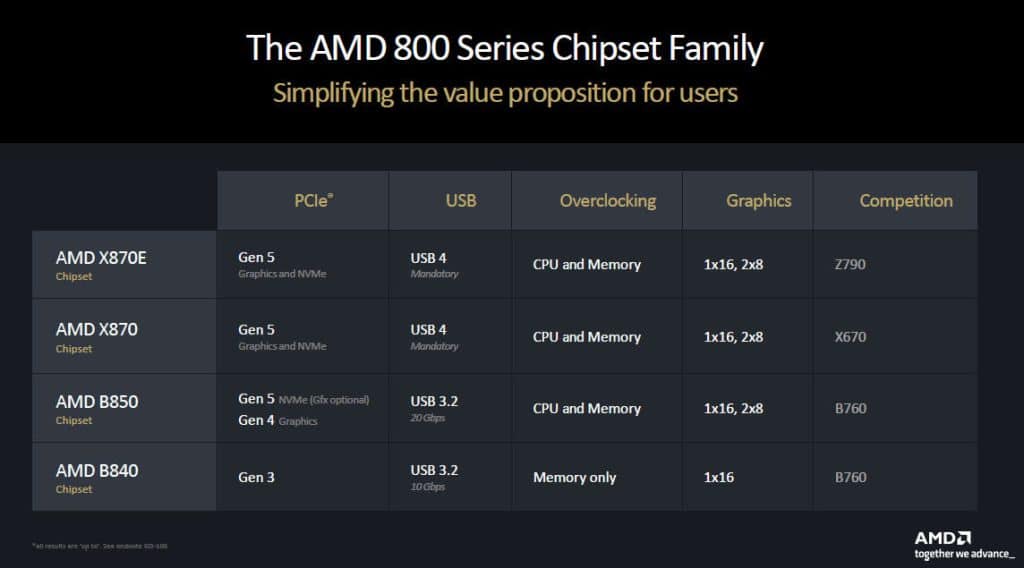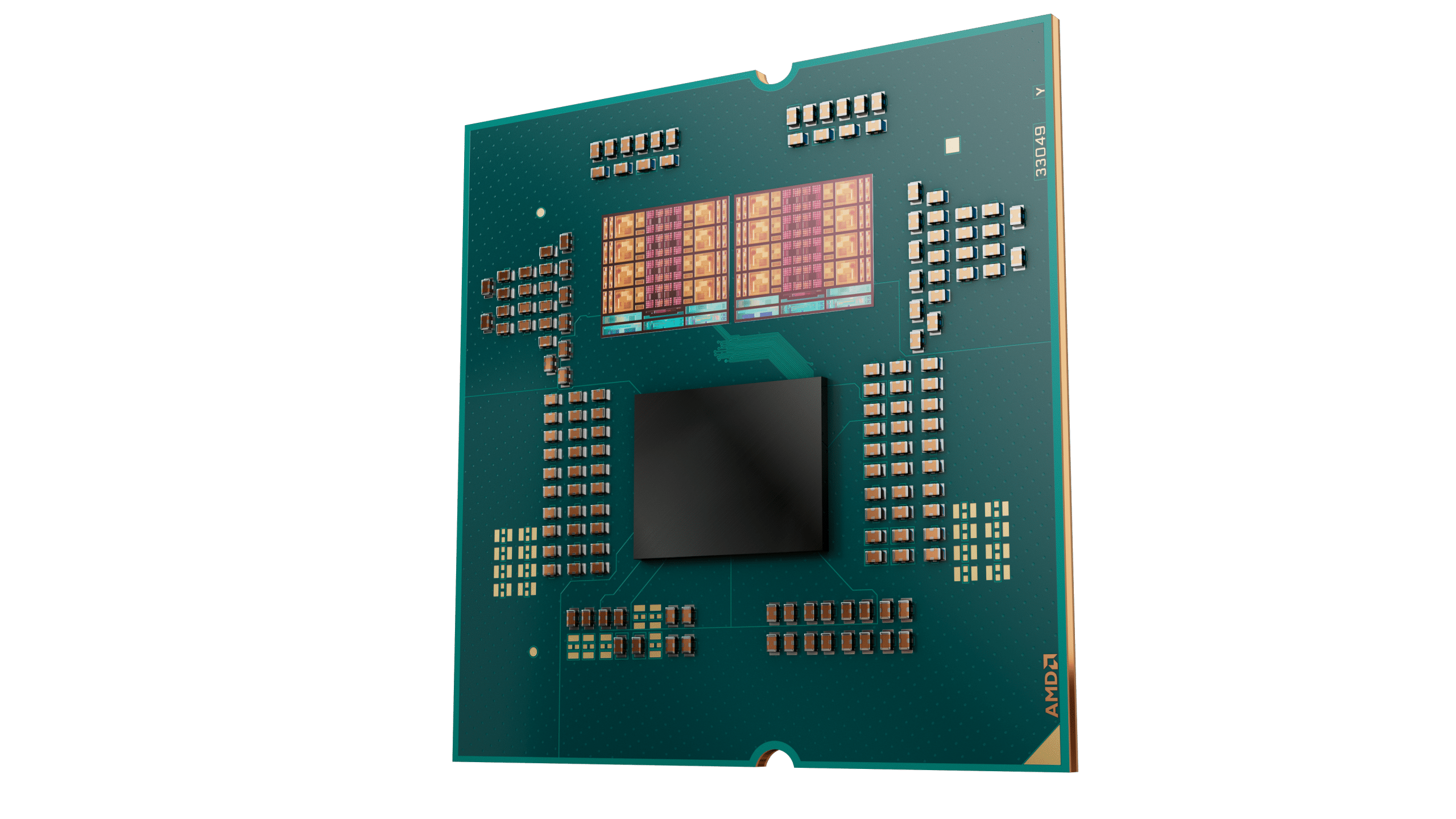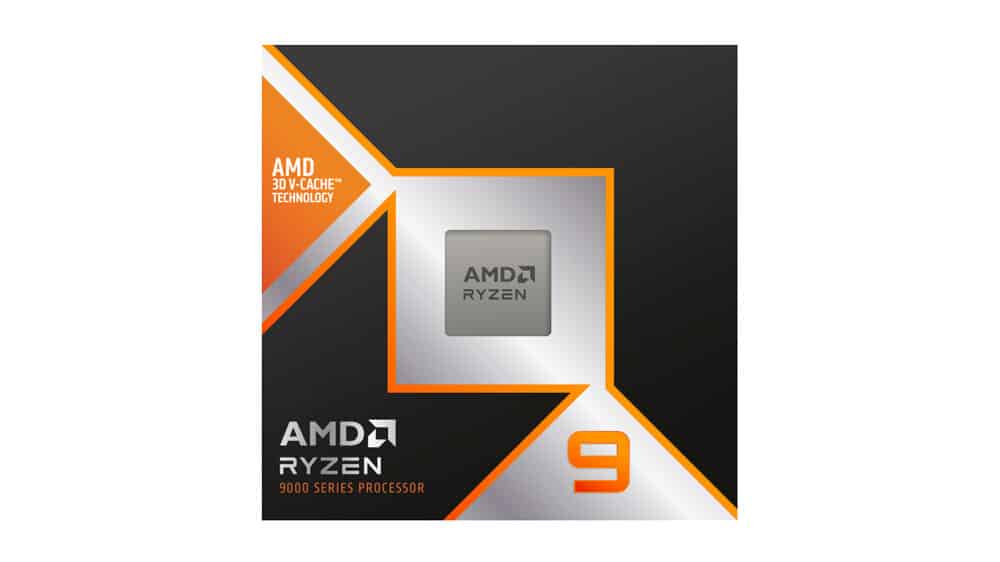The new Ryzen 9000 series processors promise to be faster than the competition for gamers and content creators while keeping their power consumption low, to achieve the highest possible efficiency. I will check all these claims in today’s review!
AMD’s Ryzen 9000 series processors are finally here, and in today’s review, I will evaluate one of them and offer you my thoughts. The major features of the Ryzen 9000 processors, according to AMD claims, are listed below:
- New Architecture: The AMD “Zen 5” architecture boasts substantial improvements to energy efficiency, performance, and AVX-512 / VNNI computational capabilities for machine learning and AI workloads.
- Major IPC Gain: Across a geomean of 13 workloads common to the desktop market, AMD has measured a +16% geomean improvement in IPC. Following in the footsteps of “Zen 2” and “Zen 3,” the “Zen 5” microarchitecture is the third consecutive AMD microarchitecture with a double-digit IPC gain. Since Piledriver, this places the compounded IPC improvement at 4.1X (based on Geekbench 5 single-thread)
- Improved 512-bit AI Datapath: With an enhanced AVX-512 datapath enabling more floating-point instructions, the AMD Ryzen 9000 Series delivers up to 3X improvement in time to the first token and 1.5X improvement in tokens per second running an LLM compared to the previous generation.
- 4nm Process Technology: The “Zen 5” CCDs migrate to the TSMC 4nm process for substantial power reductions across the range of operations. At AMD standard TDP points (65W/105W/170W), AMD has measured an average +22% gain in performance per watt.
- New 800-Series Platforms: New AMD 800-series chipsets enable new AMD 800-series motherboards. For simplicity’s sake, all X870-series boards (both X870 and X870E) have USB4 onboard and concurrently support PCIe Gen5 on both x16 Graphics and the SSD, unlike the competition. The only differentiator between the X870 and X870E is the amount of I/O: SATA, total PCIe lanes, etc.
- New EXPO Memory Speeds: The new AMD 870-series motherboards have been optimized for overclocking and, depending on the overclockability of your specific hardware, can reach DDR5-8000 and beyond (see the overclocking section below).
- New socket longevity commitment: AMD is committed to supporting this socket through 2027+ so that users can buy with confidence in future CPU upgrade support
With these new processors, AMD aims for less power usage, lower thermal loads, and quieter operation since the cooling systems will be less stressed compared to previous generation CPUs. According to AMD’s statements, the thermal resistance improvement reaches 15%, and the temperature reduction at the same TDP is 7 degrees Celsius.
Overclocking seems to be an important aspect of the new processors, with the new AGESA supporting up to DDR5-8000 speeds. There is a new memory overclocking on-the-fly option and memory-optimized performance profiles. Memory OC is enabled on all AM5 chipsets. The processor also has a new “Curve Shaper” overclocking feature.
Soon enough, AMD will also release new chipsets for higher performance. However, the new CPUs are also compatible with the existing chipsets, which require a BIOS update to exploit their capabilities fully.
One of the most important aspects of AMD’s processors is the support that the socket AM5 has and will enjoy up to 2027. For IT standards, such long support to a socket is remarkable, and users appreciate that because they won’t be forced to change the mainboard in the next upgrade.
Specifications
The Ryzen 9000 series currently consists of four models, ranging from 6x cores and 12 threads to 16x cores and 32x threads. The TDP of the lower two models is 65W, while the two higher models have 120W and 170W TDP. Against the current high-end Intel processor, the i9-14900K, AMD has the Ryzen 9 9900x, while the Ryzen 9 9950x plays alone at the top of the CPU chain.
| AMD Ryzen 9 9950x | AMD Ryzen 9 9900x | AMD Ryzen 7 9700x | AMD Ryzen 5 9600x | |
| Cores/Threads | 16/32 | 12/24 | 8/16 | 6/12 |
| Max Boost | 5.7 GHz | 5.6 GHz | 5.5 GHz | 5.4 GHz |
| Base Clock | 4.3 GHz | 4.4 GHz | 3.8 GHz | 3.9 GHz |
| L2 Cache | 16x 1MB | 12x 1MB | 8x 1MB | 6x 1MB |
| L3 Cache | 64MB | 64MB | 32MB | 32MB |
| TDP | 170W | 120W | 65W | 65W |
| Default Socket Power (PPT) | 200W | 162W | 88W | 88W |
| Max Socket Power | 230W | |||
| Max Current (EDC) | 225A | 180A | 150A | 150A |
| Max Current, Thermally Limited (TDC) | 160A | 120A | 75A | 75A |
| TjMax | 95°C | |||
| Stock/Auto Voltage Range (Active Core) | 0.650 – 1.475V | |||
| Typical Loaded Temperatures | 70-90°C | |||
| Boost Algorithm | Precision Boost 2 | |||
| Recommended Cooler | 240-280mm liquid (or equivalent) | Mid-frame tower cooler (or equivalent) | ||
| Max Memory Speed (Non-OC) | DDR5-5600 (2x 16GB) | |||
| ECC Support | Enabled in-silicon, support varies by motherboard | |||
| CCD Die Size | 70.6 mm2 | |||
| CCD Transistor Count | 8.6 billion/per CCD (up to 2 CCDs for 17.2 billion) | |||
| IOD Die Size | 122 mm2 | |||
| IOD Transistor Count | 3.4 billion | |||





I had no idea that setting thermal limit to 65 degrees can slow down cpu only by few percent in performance from stock setting. That’s literally cool.
I have tested 9700x in Cinebench r23 with below settings and single/multicore results:
65c 65W 6000Mhz memory 2098/15710 vs
95c 65W 6000mem = 2146/20280 vs
95c 105W 6400mem = single 2156/multi 20988
So it’s slowing down by 29% in synthetic tests. In games this is visible as well cause it bottlenecks your GPU.
OC is not worth it in my opinion but the CPU is the stellar deal in terms of performance per Watt for Zen 5.
I hope I am wrong now. — Buffo.
Yes, you are. Don’t get caught up in metonymy. Most of these things are false flags. But here is not the place to discuss that, I think.
Thank you, Bufo.
The em element
You have to hurry up!
We cannot live like this.
[i]test[/i]
How to format text?
[quote]test[/quote]
What tags to use?
https://www.w3schools.com/tags/tag_em.asp
—“…Today, everything has to do with efficiency, not only because of the increased electricity prices but also due to the rapid climate change, so we have to do whatever is possible to reduce our energy needs and use more efficient devices.
…
Well, these words should be framed on each bulletin board of engineering and design department …especially in Santa Clara 😛
Do you really believe in human-caused climate change?
While the climate change as such is normal, but the velocity of current warming is unprecedented in the last 65 million years (at that time the rapid cooling was caused by an extraterrestrial visitor which caused the extinction of the dinosaurs)
Apparently you also believe that there was a pandemic and that these new genetic vaccines are safe. Never mind.
You are apparently inclined to the opinions about chemtrails, flat earth, chipping, that the Americans destroyed the twin towers themselves, etc.
I hope I am wrong now. 😉
Have you ever heard about WOS, Scopus, etc?
If you are Slovak, I will successfully guess who you voted for 😮
…
Anyway, from my point of view this thread is closed 😉
You can educate me, but I will no longer respond to this thread 😉